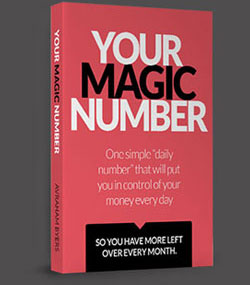Fixed expenses directly impact our discretionary spending ability, and our ability to save. Some fixed costs are inevitable: We need to pay down our mortgage, pay our utilities, and make good with the phone company every month.
These so-called “fixed” expenses, though, have a way of creeping higher across the board, under the radar, without us acknowledging their impact on our lives and livelihood.
The incremental increases seem insignificant on their own, and seem acceptable at the time. Sometimes each little bit we give up, would appear, even, to be a good deal: We agree to get the upgraded features package on our new car lease, and we “bundle” features on our cable television, and telephone bills.
We spring for a faster internet connection, after hearing it will result in $5 dollars off our newly increased cable subscription (never mind that this new “bundle” easily costs $50 more each month).
All too often, we jump into these agreements with our service providers, financial institutions, and other companies to buy new, or add to the existing services in our life. Most of the time we do this without thinking about, or realizing how each decision adds to the squeeze on how much we can spend freely each month.
“House poor” is a great example of this in action.
People are “house poor” when they buy a bigger house, without considering how the larger mortgage payments, increased property taxes, and higher utility bill costs will affect their discretionary spending.
We always tell ourselves that we’ll figure out a way to make things work. (Of course, curbed spending doesn’t actually happen in reality, which then drives people to the cycle of credit debt accumulation, and consolidation.)
Another common fixed cost transgression worth mentioning is the accumulation of fees we pay each month, simply because we don’t get around to cancelling them.
These recurring fees for promotions or services that seemed like a good idea at the time, or for services that we no longer use (gym or club memberships), add up to a significant amount of money every year.
It’s an extreme example, but we once saved a client almost $3,000 a year, just by reviewing his credit card statements, listing all of his recurring payments, and helping him cancel those which added little or no value at all to his life.
All of this adds up to a considerable squeeze on our discretionary income, yet so many people jump in, continuing to add to their list of monthly expenses, without ever considering the accumulated impact of their decisions.
How can a Personal Financial Trainer help?
It’s extremely important to keep your fixed costs in check. It’s far too easy to upgrade your car, add another item to that bundle, or sign up for another offer that allows you to cancel anytime within 30 days. You might even be convinced that buying a larger home is the right thing to do.
Working with a Personal Financial Trainer will show you how fixed costs creep into your life. We can help you keep them in check, we can help you put their true value into context, and minimize or eliminate them where possible.



Comments are closed.